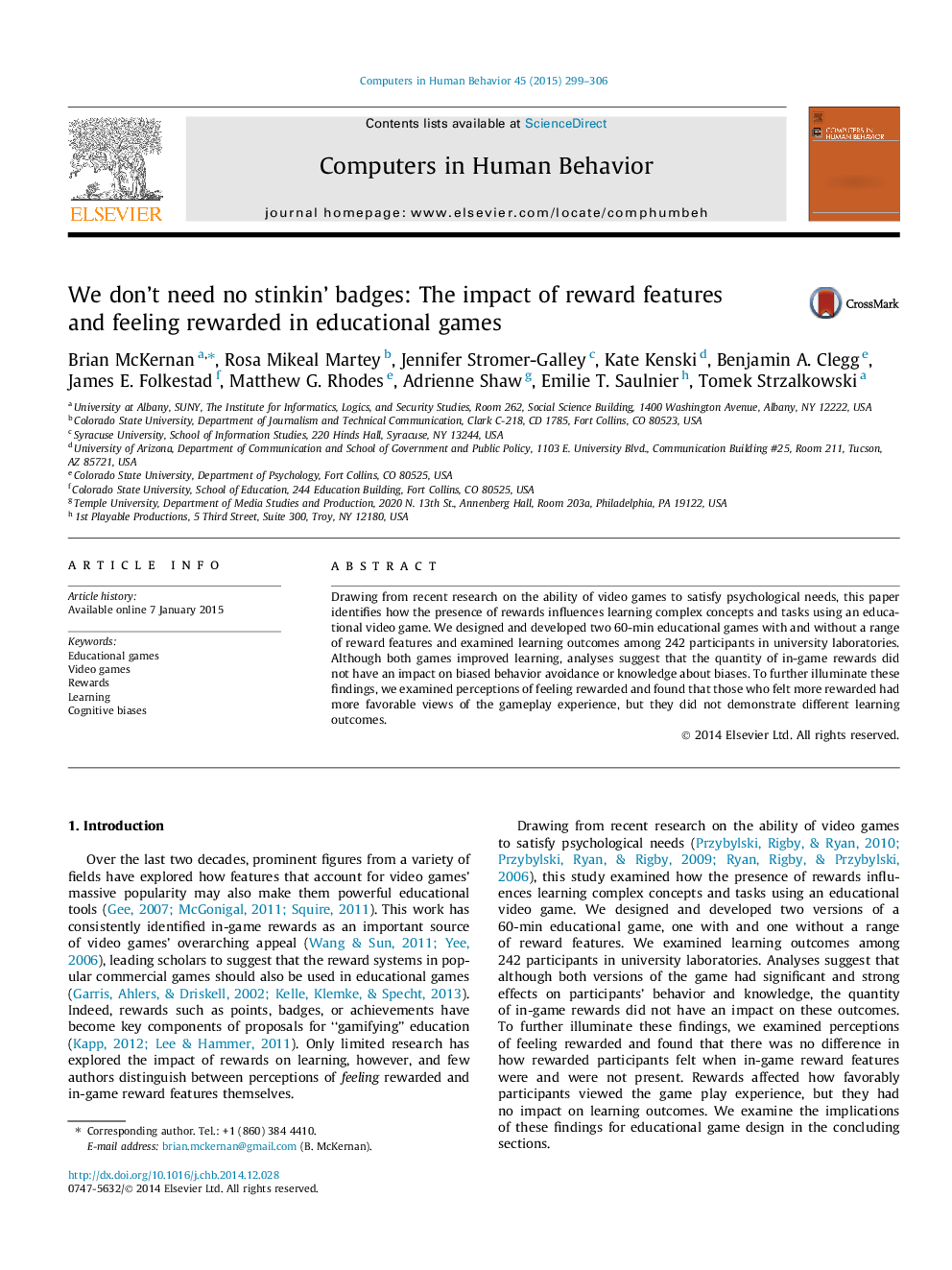| Article ID | Journal | Published Year | Pages | File Type |
|---|---|---|---|---|
| 350483 | Computers in Human Behavior | 2015 | 8 Pages |
•Examines the impact in-game rewards have on learning in an educational game.•The quantity of in-game rewards did not have an impact on learning.•Perception of feeling rewarded was not related to the quantity of in-game rewards.•Perception of feeling rewarded is positively related with player engagement.•Study suggests that designers should focus on core mechanics players find satisfying.
Drawing from recent research on the ability of video games to satisfy psychological needs, this paper identifies how the presence of rewards influences learning complex concepts and tasks using an educational video game. We designed and developed two 60-min educational games with and without a range of reward features and examined learning outcomes among 242 participants in university laboratories. Although both games improved learning, analyses suggest that the quantity of in-game rewards did not have an impact on biased behavior avoidance or knowledge about biases. To further illuminate these findings, we examined perceptions of feeling rewarded and found that those who felt more rewarded had more favorable views of the gameplay experience, but they did not demonstrate different learning outcomes.
